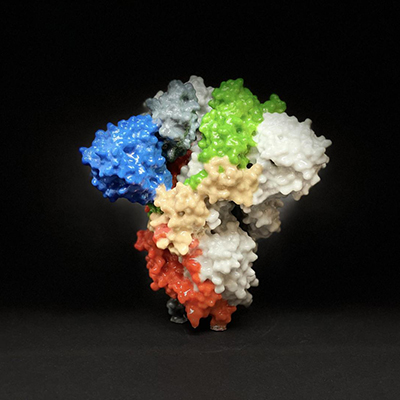December 5, 2022 -- A first-of-its-kind mouse model of aging finds overexpression of the estrogen receptor 1 (ESR1) gene could increase the risk of estrogen receptor-positive breast cancer in postmenopausal women, according to research published December 1 in the American Journal of Pathology.
During menopause, overall estrogen levels typically fall but in the breast levels of the estrogen receptor and local levels of estrogen production can increase. Researchers at Georgetown University sought to model the changes in mice. First, the scientists monitored mice as they aged and went through the natural reproductive cycle with its associated changes in estrogen levels.
To see what factors drove tumor pathogenesis, the researchers studied genetically engineered mouse models of breast cancer risk. Comparing outcomes in two mouse models, the scientists linked overexpression of ESR1 to more breast cancers than overexpression of CYP19A1. The ESR1 model showed the effect of increased estrogen receptor levels, while the CYP19A1 model revealed the impact of an increase in local estrogen production.
Dr. Priscilla Furth, professor of oncology and medicine at Georgetown Lombardi and corresponding author of the study, explained the significance of the findings in a statement.
"In the clinic, we currently use tests for over-expression of particular patterns of genes to predict the probability of whether a woman's breast cancer could become metastatic. If validated in human studies, detection of over-expression of ESR1-related genes could be a new signature to add to current prognostic tools that would help postmenopausal women at risk for estrogen receptor-positive breast cancer decide what their best risk reduction strategy might be," Furth said.
Furth and her collaborators simultaneously published a second paper, also published December 1 in the American Journal of Pathology, that looked at the effect of estrogen-suppressive drugs on mice. The researchers showed that tamoxifen and letrozole, approved breast cancer treatments, induced down-regulation of ESR1 and CYP19A1. The finding suggests the elevated risk of developing breast cancer due to over-expression of ESR1 could be lowered or reversed through administration of drugs such as tamoxifen and letrozole.
In their study, researchers used the Prediction Analysis of Microarray 50 (PAM50) prognostic tool, which reads a sample of the tumor and determines expression levels for a group of 50 genes. They found that many genes related to proliferation of breast cancer cells in the PAM50 tool were significantly expressed only in ESR1 mice, and this correlated with development of the same type of estrogen receptor-positive breast cancers that develop in humans.
"One of the more important challenges in translating our findings from mice to people is the collection of breast cancer cells for testing with PAM50 or other prognostic tools," Furth said. "Removing breast tissue, even with a fine needle, is still invasive and perhaps unavoidable. However, we have developed a method in my lab that requires collecting just a few tumor cells from a small tissue sample, as our process expands and grows the cells many-fold so that we can have adequate cancer cell numbers to run through prognostic tools like PAM50."
The team is now looking to other researchers, including scientists at developers of commercial prognostic tools, to build on the findings and start translating them into products that improve the care of breast cancer patients. Incorporating risk factors associated with genes linked to ESR1 into breast cancer prognosis tools could potentially enable women to avoid overtreatment or make more precise treatment choices.
Copyright © 2022 scienceboard.net







